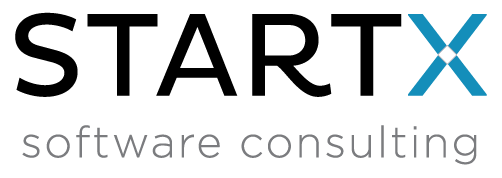For example, Microsoft launched in 1987 a spreadsheet called MS Excel, which is one of the most used applications around the world in many different economic sectors including Banking, Government and SMEs. In this way, every user who uses Excel can adapt it to their own needs. At that time, Microsoft makes a great move that managed to cut its costs: it creates a software only once 1 and sells the same product to millions of companies and users.2
Another clear example would be Apple’s iTunes, a music service in which users can listen to and download songs from favorite artists, purchasing songs individually without having to buy the whole album.
However, being generic programs, they do not meet all the needs that companies have, often interfering with their processes, making it difficult to manage the core business because decisions cannot be made in a timely and efficient manner.
Generally, companies do not see real returns when custom software is made because they believe that the cost will be greater than the benefit. However, there are several pros that far outweigh the cons.
The following are five important benefits that a company obtains when contracting a custom software development.
- Integration: Generally, companies already have systems (whether computerized or manual), which need or produce information for decision making. When a custom development is done, an analysis of the existing systems and the impact that the new application will have on them is performed: evaluating the information that already exists and that can be reused as raw material, and/or determining the formats of the information that will result from the new system and how it will feed other systems.
- Scalability: Custom software is more scalable than generic software. Although it depends on the negotiation between the client and the software development company, generally the client owns the source code of the application. In this way, when there are new needs, new processes or changes in requirements, it is easier to adapt the existing software, and therefore, the software can be adapted or extended to other areas of the business that it did not cover before; making the processes more agile and reliable, so it helps to focus the relevant information used in decision making in an efficient way.
- Support and Maintenance: When a customized development is carried out, the development company ensures the proper use of the software and that it meets the agreed needs, i.e., that the software is perfectly aligned with the expected results, or that the errors that the system may present are minimized, for example, that it does not conflict with other previously installed applications. To minimize errors, the development company has several strategies, among which we can mention:
- Making an exhaustive study of the customer’s needs and requirements to design the software.
- Select the most appropriate development tools to achieve an optimal level in the application.
- To have permanent communication with the clients
- To have a software quality assurance (QA) department.
- To hire software developers specialized in the selected design and development tools.
- Have development methodologies that streamline and standardize the development process, allowing a quick implementation and greater impact as soon as possible.
- Availability: Information is a source that guides the company. For this reason, it is vital that it is available 24 hours a day. However, a detailed analysis of the type of information that each user can access, and control must be carried out. In the development of custom software, data is considered as raw material to produce information and, in this way, making reports, statistics and others that go in the achievement of the objectives set by the company, is a vital activity that should be available at any time and place.
- Costs: No matter what the budget is, you can always count on that the investment made in the development of a software will bring economic benefits in the future such as time reduction, reduction of training, reduction of manual processes and sources of errors caused by human talent; savings in decision making time that positively impact the company. Many people see the cost of custom software development as a disadvantage, maybe it is in the short term, but in the medium and long term a significant cost reduction is obtained thanks to the contribution of custom software in the organization, thus being more profitable to have a good application or web page than a generic software.
In conclusion, and taking as an example a practical case, sometimes a person prefers a blue trouser size S because it is fashionable or cheaper (not always), instead of using a trouser of the desired size and color that is more comfortable and better suited to their needs. Something similar happens if the company chooses to implement a generic software, since it falls into the serious error that the data, processes, and information must be adapted to the selected software, which could lead to unnecessary costs and harm the general operation of the company.
Notes
1 This does not consider the program updates to which the person who obtains the product is entitled.
2 This can be done without incurring higher production costs as software is considered an intangible product. For this reason, it can be created once and cloned as many times as desired.


